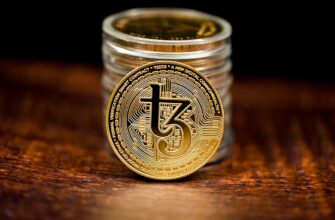- Why Anonymizing Your Account Matters More Than Ever
- Preparation: Audit Your Digital Footprint
- Step 1: Remove Personal Information
- Step 2: Secure Connections With Encryption Tools
- Step 3: Generate Disposable Identifiers
- Step 4: Purge Historical Data
- Step 5: Verify and Maintain Anonymity
- Frequently Asked Questions (FAQ)
- Is anonymizing my account legal?
- Will anonymizing break my account functionality?
- How often should I repeat this process?
- Can companies still identify me after anonymization?
- Should I delete or anonymize unused accounts?
- Does using a VPN guarantee anonymity?
Why Anonymizing Your Account Matters More Than Ever
In today’s digital landscape, protecting your identity online isn’t just optional—it’s essential. Whether avoiding targeted ads, preventing data breaches, or safeguarding against identity theft, learning how to anonymize account safely step by step gives you control over your digital footprint. This comprehensive guide walks you through proven techniques to obscure your personal information across platforms while maintaining usability. Follow these methods to reclaim your privacy without sacrificing functionality.
Preparation: Audit Your Digital Footprint
Before making changes, understand what you’re protecting:
- Inventory accounts: List every platform where you’ve shared personal data (social media, shopping sites, apps)
- Identify sensitive data: Note where you’ve used real names, addresses, payment details, or phone numbers
- Check privacy policies: Research how each platform stores and shares your information
- Backup essential data: Export contacts or content you wish to keep before anonymizing
Step 1: Remove Personal Information
Start scrubbing identifiable details from your profiles:
- Replace real names with pseudonyms (avoid obvious aliases)
- Delete profile photos showing your face or location clues
- Erase birthdates, hometowns, workplaces, and relationship statuses
- Remove phone numbers and physical addresses from all accounts
Pro Tip: For email accounts, create a new alias instead of modifying your primary address to avoid lockouts.
Step 2: Secure Connections With Encryption Tools
Prevent tracking through your network activity:
- Install a reputable VPN to mask your IP address
- Enable HTTPS Everywhere browser extension
- Use privacy-focused browsers like Firefox Focus or Tor
- Activate two-factor authentication with authenticator apps (not SMS)
Step 3: Generate Disposable Identifiers
Compartmentalize your online presence:
- Create separate email aliases using services like SimpleLogin or AnonAddy
- Use virtual phone numbers (Google Voice, Burner) for verifications
- Generate usernames unrelated to your real identity
- Employ password managers to store unique credentials securely
Step 4: Purge Historical Data
Eliminate old traces that could reveal your identity:
- Delete old posts, comments, and location check-ins
- Remove tagged photos and untag yourself from others’ content
- Clear search histories and cached data in browsers/apps
- Submit data deletion requests using GDPR/CCPA forms where applicable
Step 5: Verify and Maintain Anonymity
Confirm your efforts worked and stay protected:
- Search your pseudonyms on Google to check for leaks
- Conduct reverse image searches on profile pictures
- Regularly audit permissions for third-party app access
- Update privacy settings quarterly as platforms change policies
Frequently Asked Questions (FAQ)
Is anonymizing my account legal?
Absolutely, provided you’re not evading legal obligations. Privacy laws like GDPR explicitly support your right to control personal data.
Will anonymizing break my account functionality?
Some features (like friend recommendations) may be affected, but core functions remain intact. Test critical services after changes.
How often should I repeat this process?
Conduct full anonymization annually, with quarterly checkups for new data leaks. Immediately update after major life events (moves, name changes).
Can companies still identify me after anonymization?
Properly executed, these steps make identification extremely difficult. However, determined entities with legal authority might trace activity through advanced methods.
Should I delete or anonymize unused accounts?
Always delete dormant accounts—they’re prime targets for breaches. Use services like JustDeleteMe to find removal options.
Does using a VPN guarantee anonymity?
VPNs are crucial but insufficient alone. Combine with browser fingerprint protection, cookie management, and behavioral precautions for robust security.
Mastering how to anonymize account safely step by step transforms you from a data commodity to a guarded digital citizen. Implement these techniques methodically, remain vigilant about new threats, and enjoy the freedom of a truly private online existence.








